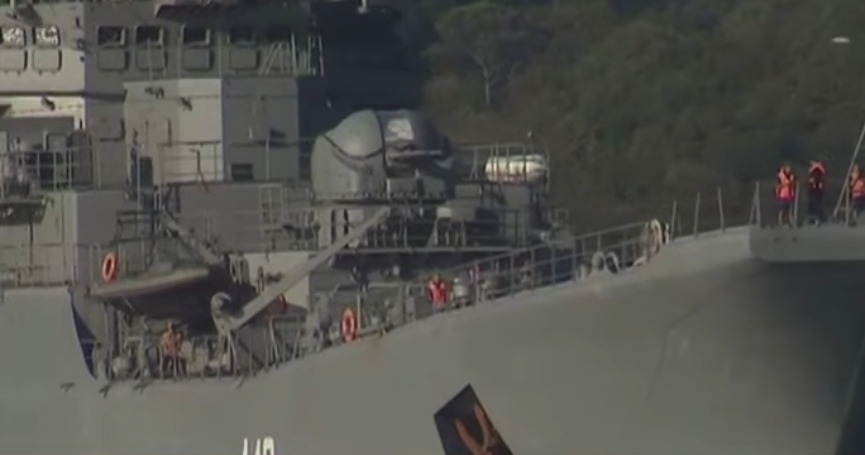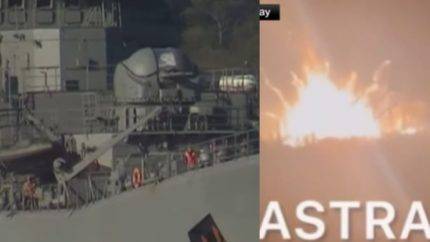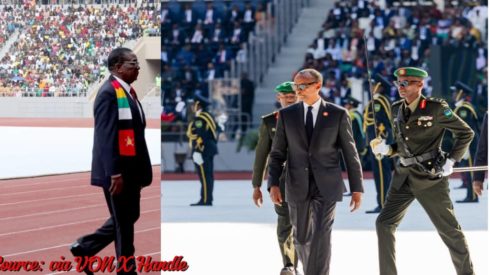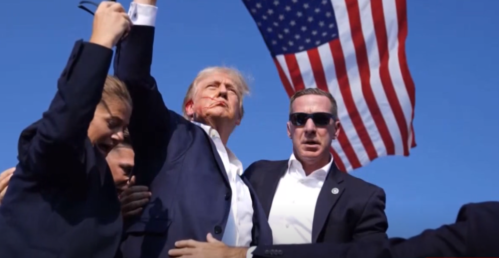Ukraine executed an air attack on Feodosia in Crimea, escalating tensions in the already volatile region. The assault, as reported by Ukraine’s air force commander, Mykola Oleshchuk, allegedly resulted in a fire in the town’s port area. The incident marks a significant escalation in the ongoing conflict between Ukraine and Russia.
Amidst the chaos, Oleshchuk claimed on the Telegram messaging app that a major Russian Navy vessel, the landing Novocherkask ship, was destroyed in the attack. The announcement was met with enthusiasm from Oleshchuk, who remarked on the diminishing Russian fleet. However, the lack of independent verification raises questions about the accuracy of these claims.
Unverified Claims and Immediate Reactions
The report, lacking independent verification, adds complexity to the unfolding situation. As of now, there has been no immediate comment from Russia, leaving the international community in suspense. The absence of confirmation raises concerns about the reliability of the information provided by Ukraine’s air force commander.
In a show of support for the alleged success, Oleshchuk praised the Air Force pilots and everyone involved in what he called “filigree work.” The situation demands cautious analysis, considering the history of both Russia and Ukraine exaggerating their achievements and downplaying losses in the ongoing 22-month long war.
Potential Impact on Naval Dynamics
In a potential turning point for naval dynamics, Ukraine’s claims, if verified, suggest a significant setback for the Russian Navy with the reported destruction of the Novocherkask ship. Oleshchuk’s assertion pointing to a diminishing Russian fleet adds depth to the narrative, raising concerns about the broader implications for regional naval power balance.

As the international community keenly observes these developments, the alleged attack on the Novocherkask holds the potential to reshape maritime dynamics, prompting assessments of its repercussions on global geopolitical relations and naval strategies in the region.
This incident underscores the strategic importance of accurate information dissemination and collaborative efforts in analyzing evolving geopolitical situations. With maritime dynamics playing a pivotal role in regional stability, the repercussions of the Novocherkask incident may extend beyond the immediate naval arena, influencing diplomatic relations and security strategies among nations.
Verification Challenges in Information Warfare
In the complex landscape of information surrounding the ongoing conflict between Russia and Ukraine, the absence of prompt verification poses a significant hurdle. This critical aspect underscores the inherent challenges in navigating the intricate web of information warfare between the two nations. Historical patterns reveal a tendency for both Russia and Ukraine to amplify the losses they claim the other side has suffered, all while minimizing their own casualties.
This dynamic further emphasizes the necessity for an informed and discerning audience, as the latest incident unfolds. To successfully comprehend the true scope of events and their broader implications, relying on reliable and unbiased sources becomes increasingly imperative in this volatile context.
In the face of escalating tensions, the demand for accurate information is paramount. The historical backdrop of both nations engaging in a narrative battle adds a layer of complexity to understanding the unfolding events. As misinformation can proliferate rapidly, individuals seeking a comprehensive grasp of the situation must prioritize accessing trustworthy sources. Amidst the ongoing information war, the quest for verifiable facts and unbiased reporting emerges as a crucial component in deciphering the nuances of the conflict between Russia and Ukraine.

Ukraine and Russia Conflict- Ongoing Tensions and Historical Context
In recent developments, an air attack has become the latest addition to the series of incidents that have prolonged the 22-month conflict between Ukraine and Russia. At the heart of this ongoing struggle lies the historical context of Crimea, which was annexed by Russia in 2014. The annexation serves as a persistent flashpoint, intensifying tensions between the two nations. To comprehend the complexities of this geopolitical issue, it is crucial to understand the historical roots of the conflict, particularly focusing on the events surrounding Crimea.
Against this backdrop, the international community faces a pressing call to diplomatically intervene in order to prevent further escalation of hostilities. A sustainable resolution to the Ukraine-Russia conflict hinges on collaborative efforts and diplomatic initiatives. In addressing this multifaceted challenge, global leaders and organizations must prioritize dialogue and negotiation to pave the way for lasting peace in the region. This comprehensive approach will not only contribute to conflict resolution but also enhance international stability and security.
International Response to Air Attack: Urgent Calls for Diplomacy and Restraint
In the wake of the air attack, a swift and coordinated international response is anticipated. As news of the incident circulates globally, there is a heightened expectation for diplomatic initiatives and calls for restraint to take center stage. The evolving situation prompts urgent appeals for peaceful dialogue, with a strong emphasis on encouraging both Ukraine and Russia to engage in constructive negotiations.
The United Nations and other prominent global entities are poised to play a pivotal role in mediating tensions and preventing the escalation of the conflict. Amidst the growing concerns, there is a collective hope that these organizations will leverage their influence to facilitate a resolution. As the international community looks to these entities for guidance, their involvement is crucial in shaping a path towards stability and averting the potential emergence of a broader and more devastating conflict.
Table of Contents
Discover more from OGM News NG
Subscribe to get the latest posts sent to your email.














